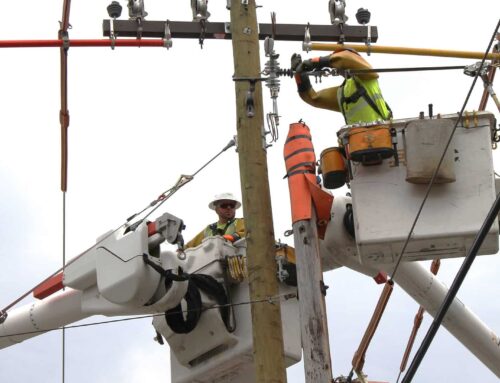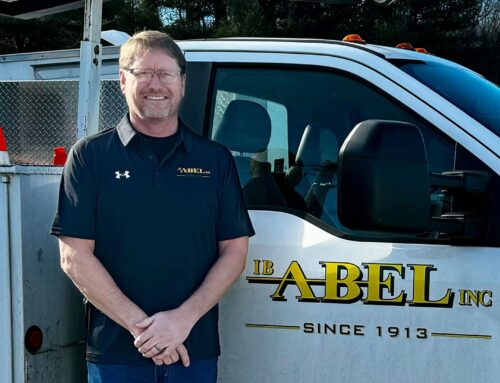Focus 3 to Integrate Personal Accountability Program
In 2014, with the guidance of our clients and executive leadership, the Safety & Quality Department was tasked with initiating our “Focus 3” program. Focus 3 was IB Abel’s tool to address hazards, and even more specifically, life-threatening hazards that we are faced with in the electrical trades. Focus 3 is specifically our tool to address Critical Steps. It’s our expectation of how to mitigate those steps—the worker is expected to utilize Self-Check, Peer Check, and Stop/Timeout when appropriate.
Focus 3 – Critical Step recognition and mitigation through Self-Check, Peer Check, and Stop/Timeout when appropriate.
- Critical Step – Any action that will cause immediate harm if the preceding step or action is performed improperly or omitted.
- Self-Check – The STAR principle: Stop, Think, Act, and Review. This is when the worker is consciously reviewing the intended action and expected response just before performing the specific task.
- Peer Check –This involves having a second knowledgeable individual verify that the action planned by the performer is correct before execution and that it occurs according to plan.
- Stop/Timeout – Given that chances for error are particularly high in a knowledge-based situation, the best course of action, when unsure, is to stop and get another “mind” on the problem (also known as “Timeout”). Any member of a work crew can ask for a timeout when conditions appear incorrect or the worker is unsure of how to proceed.
This year, we are building on our Focus 3 initiative by integrating a personal accountability program. Due to recent events, IB Abel is working to assist the industry community in addressing identified deficiencies. Too many times after an incident, an employee sees an issue and is not comfortable speaking out to address it. Creating the atmosphere in which it is the norm to speak out is the challenge and the goal.
Our approach for 2015 is as follows: IB Abel will continue its focus on Critical Step identification and Focus 3 mitigation. This will be measured through our observation program with an expectation to observe accurate Critical Step identification and documentation on 95 percent of all pre-job briefings. This should also demonstrate a reduction in severe events.
IB Abel will then work to address personal accountability. We are defining personal accountability as each individual making good choices, using Focus 3, and taking ownership for oneself, one’s crew, and the job. This will be measured through the leadership submitting Positive Project Impacts or Good Catches each month. Another measurement will be through tracking teamwork activities of pre-bid meetings, preconstruction meetings, management and field handoffs, and team member use of Stop/Timeout to ensure these activities are performed (i.e., a Safety Plan, Risk Assessment, Pre-construction Meetings, Pre-Job Briefing, Stop/Timeout, etc.).
These activities will be recognized and rewarded immediately to reinforce such behaviors. It is everyone’s responsibility to make these behaviors known. When communicated, these behaviors and activities will be tracked by the Safety & Quality Department and will show an increase of overall company profitability through reduction of events and more efficient work practices.
Lastly, IB Abel will utilize administrative tools to assist the new initiative. One of our most important Human Performance (HuP) tools is that of the pre-job briefing. Once again, IB Abel used client influence to assist in improving our program by introducing “Four Key Questions” to our pre-job briefings. The changes in form use will be supported through ongoing training. This training will take place during IB Abel’s onboarding process, as well as through quarterly Human Performance training. It will be measured by the training taking place, as well as through proper use, demonstrated in observations.
The Four Key Questions are:
- What error-likely situations or error precursors are there?
- What are the critical steps or phases of this job/task?
- What bad things can occur?
- What barriers or defenses are needed?
With the change of any expectation, it takes time for people to make the transition. We all cling to old expectations until we are confident we can be successful in the new ones. This is why personal accountability will be so important this year. It gives everyone the opportunity to be a leader, by focusing on speaking up to engage their team to perform our HuP Tools or positively reinforce IB Abel’s expected behaviors. We all inadvertently pay attention to old indicators instead of new ones, and the Safety & Quality Department will work to continuously communicate the expectations of the Executive Safety Committee.






Leave A Comment
You must be logged in to post a comment.